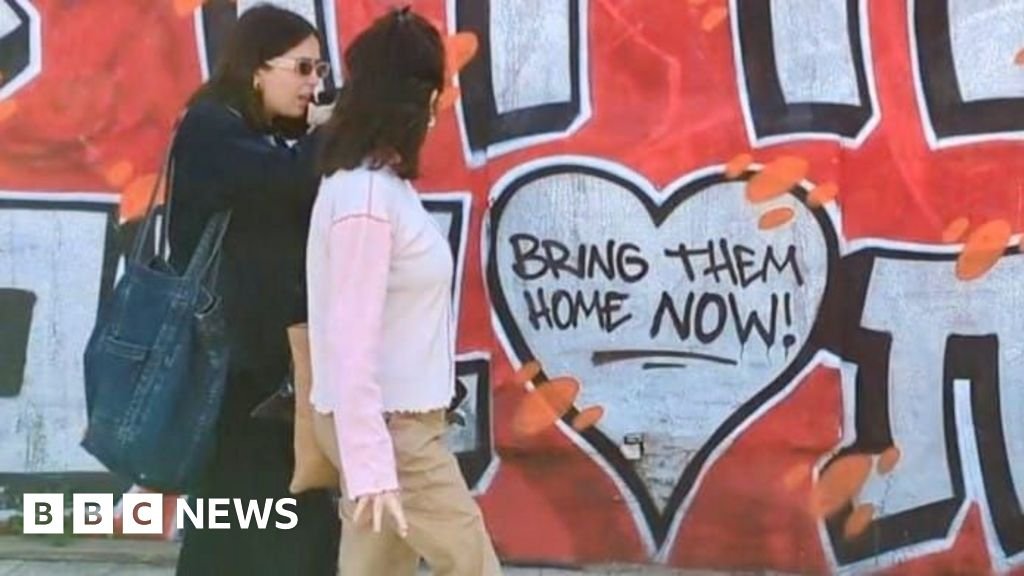After months of stalemate, there are new signs that Israel and Hamas may be moving closer to a ceasefire and hostage release agreement in the Gaza Strip.
A senior Palestinian official involved in the indirect negotiations told the BBC that the talks were at a “crucial and final stage.”
Israeli Defense Minister Israel Katz also said an agreement was closer than ever.
In recent weeks, the United States, Qatar and Egypt have resumed mediation efforts and reported greater willingness from both sides in this 14-month war to reach an agreement.
An Israeli delegation described as a “working level” is currently in the Qatari capital Doha, amid a hectic diplomatic back-and-forth in the region.
The Palestinian official outlined a three-phase plan that called for the release of civilians and female soldiers held hostage in Gaza in the first 45 days, with Israeli forces attacking city centers, the coastal road and the strategic strip of land along the should leave the border with Egypt.
There will be a mechanism for displaced Gazans to return to the territory’s north, the official said.
In a second phase, the remaining hostages would be freed and the troops withdrawn before the war would be ended in the third phase.
Of the 96 hostages still held in Gaza, Israel believes 62 are still alive.
The plan appears to be based on the deal unveiled by US President Joe Biden on May 31, and reports from all sides emphasize that key details still need to be worked out.
A round of negotiations in mid-October failed to produce an agreement as Hamas rejected a short-term ceasefire proposal.
According to his spokesman, Katz told members of the Israeli Parliament’s Foreign Affairs Committee on Monday: “We have not been this close to an agreement on the hostages since the previous deal,” referring to an exchange of hostages and Palestinian prisoners in Israel in November 2023.
He has since written on X: “My position on Gaza is clear. “After we defeat Hamas’ military and governmental power in Gaza, Israel will have security control of Gaza with complete freedom of action,” comparing this to the situation in the occupied West Bank.
“We will not allow terrorist activities against Israeli communities and Israeli citizens from Gaza. We will not allow a return to reality before October 7th.”
Such comments are likely to be viewed as problematic by negotiators trying to close gaps with Hamas. But in Israel they are seen as crucial in securing the support of far-right Israeli cabinet ministers who had previously warned that they would not agree to what they called a “reckless” deal in Gaza.
The Palestinian Islamist armed group Hamas, which ruled Gaza, carried out an unprecedented cross-border attack in southern Israel on October 7, 2023. Around 1,200 people were killed and 253 others were kidnapped.
More than 100 hostages were freed through negotiations or Israeli military rescue operations.
According to Palestinian sources, Israel halted air traffic and drone surveillance over the area for six hours on December 7 at the request of intermediaries, allowing Hamas to gather information about the hostages.
The pro-Qatari newspaper al-Araby al-Jadeed then reported that Hamas had given Egyptian intelligence officials a list of sick and elderly Israeli hostages, as well as those with US citizenship. The newspaper said it also included the names of Palestinian prisoners the group demanded as part of the deal.
At the start of the war in Gaza, Israel promised to destroy Hamas’s government and military capabilities. More than 45,000 Palestinians have been killed since then, according to figures from the Hamas-run Health Ministry, which are considered reliable by the United Nations and others.
Most of Gaza’s 2.3 million residents have been displaced, widespread destruction has occurred and mass hunger now reigns amid the ongoing battle to provide aid to those in need.
Donald Trump’s victory in the US presidential election in November gave new impetus to diplomatic efforts.
At a news conference on Monday, he again warned that a ceasefire agreement should be reached before he takes office. Otherwise, he said, “It won’t be pleasant.”





